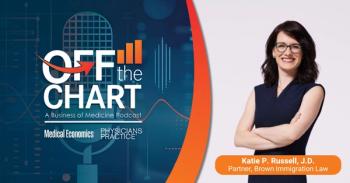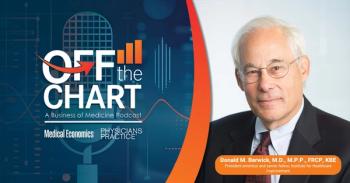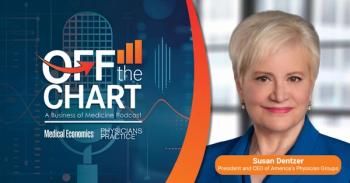
What if Medicaid Expansion Was Upheld by Supreme Court?
Election Day winners promise the Affordable Care Act will fail. But what if it had actually had been given a chance to work?
The midterm elections are over, Congress is controlled by conservative Republicans, and five key governor's races went to candidates who vowed never to expand Medicaid in their states. This brings me to a November 3 New York Times article which posed an interesting question:
In order to recap, the Affordable Care Act recognized that as a system, health insurance works best if there is universal coverage. It does not matter whether universal coverage is obtained voluntarily or through something akin to blackmail.
Medicaid is a federal program created in 1965 along with Medicare. Unlike Medicare, Medicaid is partially funded by the U.S. government, but is administered by the individual states, free to set their own eligibility requirements. The amount of federal money provided to each state depends upon a number of factors. States must pay for the remainder of Medicaid costs. The reform law forced individuals and businesses to purchase health insurance, and attempted to coerce states into expanding Medicaid. Many refused. Thanks to a Supreme Court opinion holding that states cannot be penalized for exercising a right to choose not to expand, Medicaid expansion never got off the ground in holdout states.
Congress recognized some of the poorer states lack the budget to pay for Medicaid expansion, thus Congress included a "carrot." Under the law, the federal government promised to pay all the costs of these "newly eligible" …. but not forever. Trouble was, the law also carried a "stick." The states were given a "choice" under severe penalty for choosing unwisely: Either expand Medicaid, or lose federal Medicaid funding altogether. The U.S. Supreme Court struck this provision down, as unconstitutionally coercive. The world's originator of national healthcare, Germany's Otto Von Bismarck, was probably correct in his observation in the late 1800's, "Laws are like sausages, best that you don't watch either being made." At any rate, a major pillar of the Affordable Care Act, coerced Medicaid expansion was dead.
Two years later, the Times wonders, "what might have been," but for Supreme Court meddling.
The bias in the drawing implies that an epidemic of "bad things" could have been be avoided, (and utopia achieved), if Medicaid had been expanded as Congress intended. That's ridiculous.
Simply placing a large portion of the population into an unfunded, or underfunded government insurance program, which doctors likely will eschew, does not mean the problem of the uninsured population has been solved.
According to a 2014 Merritt Hawkins study, Medicaid pays so poorly compared to Medicare,
In many of the states where the expansion would have been forced, the acceptance rate is around three out of 10 doctors. Clinics accepting Medicaid can't always see new patients quickly. Many further believe Medicaid patients are more likely to sue for malpractice. If a patient can find a doctor, the below-cost reimbursement levels result in clinics which are understaffed, and lack modern equipment.
Medicaid is largely seen as a socialized dystopian mess, requiring physicians to take on too many patients, which means something akin to Soviet bread lines, with no margin for profit.
Now that the elections are over, the more troubling question isn't so much whether Medicaid will ever be expanded, but instead: Who will take will take care of people who are simply too poor to afford basic healthcare?"
Newsletter
Optimize your practice with the Physicians Practice newsletter, offering management pearls, leadership tips, and business strategies tailored for practice administrators and physicians of any specialty.






